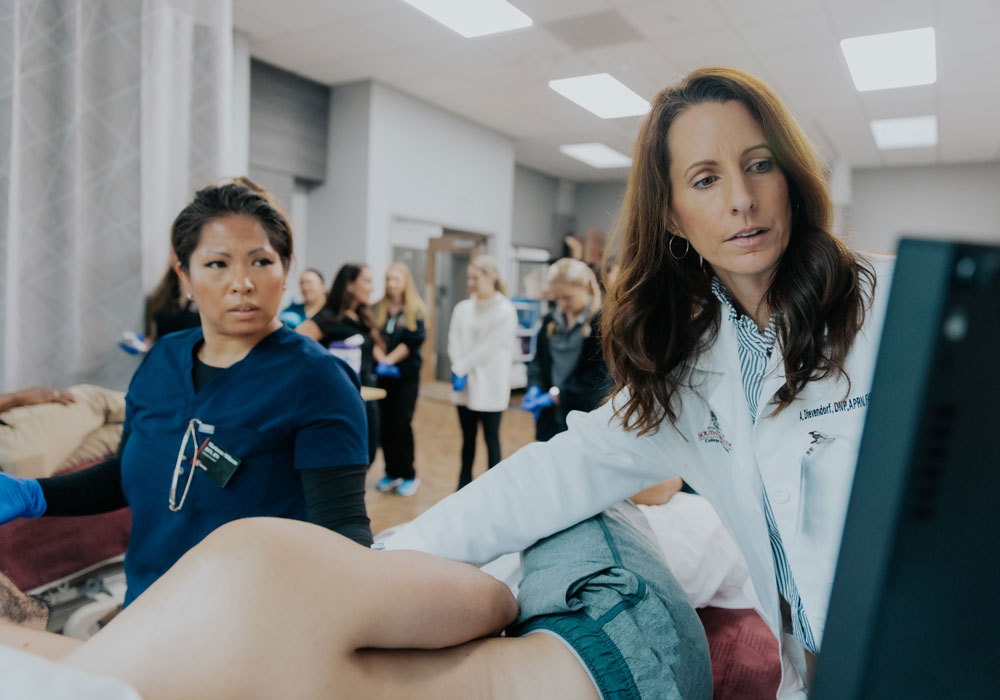Nursing students at the University of South Carolina are getting hands-on simulation training with the newest generation of portable ultrasound equipment this November.
Associate Professor Amy Dievendorf, who is the director of the Adult-Gerontology Acute Care Nurse Practitioner program, led the first immersion training with graduate-level nurse practitioner students on Nov. 8 at the College of Nursing’s new Clinical Education Building in West Columbia.
A first for nursing: GE HealthCare chose USC as the first nursing college to loan their new Venue Sprint portable ultrasound devices for a 28-day trial. Previously, the point-of-care ultrasound had only been demonstrated at trade shows. In return, the college provides feedback to GE about the technology as well as notes on how it can be used by nurses.
A closer look: GE HealthCare’s Venue Sprint devices are designed for maximum portability, with a tablet form factor that features AI-enabled software tools as well as wireless Vscan Air dual-probes. Vscan Air is a pocket-sized scanner that can also be linked via a cellphone app, rather than a laptop or tablet, to easily analyze quick-scan patient results.
Accelerated training: The state-of-the-art simulations accelerate how nursing students learn anatomy, physiology and advanced health assessments. GE HealthCare’s software includes built-in training modalities, so providers can instantly receive directions on best practices and uses.
The college’s goal is to incorporate ultrasound training across all nursing graduate programs to prepare students to be primary care providers, critical care intensivists as well as cardiology and pulmonary providers.
Why it matters: With detailed ultrasound images, students see real-time information that allows them to discover patient insights at the point of care. Accelerated diagnoses can lead to treatment decisions that increase accuracy and speed of care, improve patient outcomes and lower health care and travel costs while reducing the need for additional testing. This can play a key role in expanding access across care settings and reducing health inequities.
What she’s saying: “Point-of-care ultrasound training has been standard in physician training for a long time,” Dievendorf says. “I feel very strongly that nurse practitioners need to be trained the same as our other colleagues who are going into these acute care settings. We feel very privileged to study with these brand-new units that aren't even in our hospital systems yet.”
